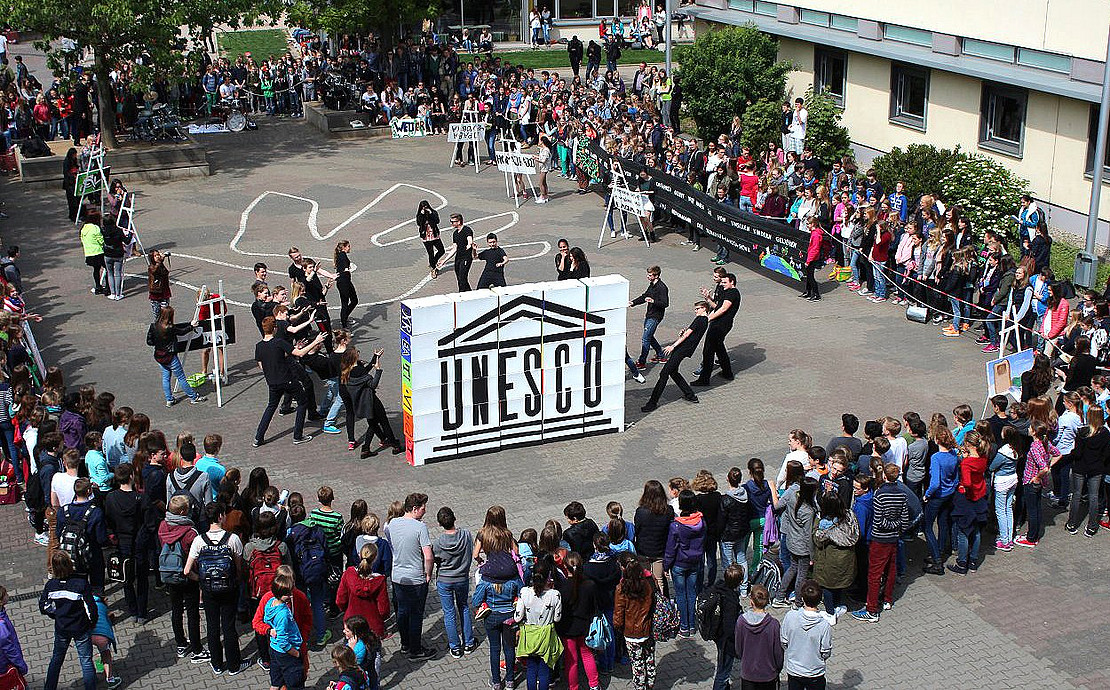This page contains automatically translated content.
Symposium of the UNESCO project schools in Kassel
 Image: Klaus Schilling (UNESCO)
Image: Klaus Schilling (UNESCO)From September 17 to 20, around 200 participants will discuss future-oriented democracy education in Germany's schools at the nationwide conference of UNESCO project schools in Kassel. The expert audience will exchange views on how to deal with hate speech and exclusion, how to anchor democratic education elements in everyday school life, and on the democratic potential of art.
The conference will be opened in Kassel's City Hall by Hesse's Minister of Education and Cultural Affairs, the current President of the Standing Conference of the Ministers of Education and Cultural Affairs of the Länder in the Federal Republic of Germany, Prof. Dr. R. Alexander Lorz, and the President of the German UNESCO Commission, Prof. Dr. Maria Böhmer, together with Ilona Friedrich, Mayor of the City of Kassel, and Prof. Dr. Reiner Finkeldey, President of Kassel University. Afterwards, Roland Jahn, the Federal Commissioner for the Stasi Files, and Marina Weisband of politik-digital will discuss the challenges for democracy and education with students.
The symposium is sponsored by the German Foreign Office and the Hessian Ministry of Education and Cultural Affairs. The Center for Teacher Education and the Department of Didactics of Political Education at the University of Kassel, the Museumslandschaft Hessen Kassel and many other museums and learning sites from Kassel and the surrounding area are supporting the event. The conference is open to the media.
Press accreditation
Registration is requested by e-mail to bundeskoordination(at)unesco.de.
Background
The network of UNESCO project schools in Germany consists of about 300 schools. All types of schools and federal states are represented. The UNESCO project schools work closely together and benefit from the worldwide exchange with over 11,500 UNESCO project schools in 182 countries. UNESCO project schools anchor the goals and values of UNESCO in their school profiles and mission statements as well as in everyday school life and pedagogical work. The focus is on democracy and human rights education, intercultural learning, world heritage education, education for sustainable development, and the opportunities and risks of the digital age.
Further information